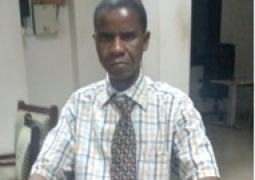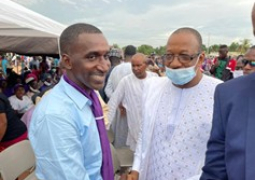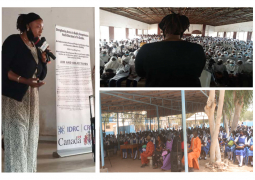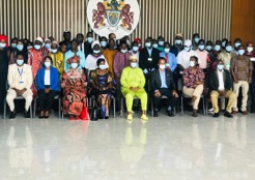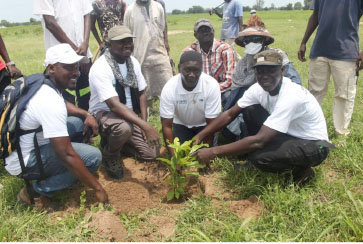
The exercise was led by the Dodou Trawally, executive director of National Environmental Agency, Ousainou Touray, GEF-6 project coordinator, Njagga Touray, NEA-DISN, Alkalo and VDC members as well a Regional EBA project officer Ebou Janha and staff of Forestry Department.
The Government of The Gambia in collaboration with UNEP, is implementing the GEF-6 Landscapes/Seascapes Planning & Restoration project for a period of 5 years. On behalf of the Government of The Gambia, the National Environment Agency (NEA) is implementing the Project with the objective of improving the capacity of local communities in the prevention, mitigation and offset negative impacts on Biodiversity and Ecosystem services.
The project seeks to create an enabling environment for The Gambia in building national capacity to lead the reform of land use and marine spatial planning policies and to implement land/seascape level management that conserves ecosystem services in productive and protected land/seascape.
The outcome of the project is expected to increase protected areas coverage in the Kuntaur LGA, increase ecological connectivity between and within different priority biodiversity habitats by creating Indigenous Community Conserved Areas.
Addressing local communities, Dodou Trawally reiterated that restoration of damaged ecosystems is becoming increasingly important because ‘our planet’ would sustain an increasingly heavy human footprint as human populations continue to increase.
The exercise, he said, can improve vegetation covers and enhance desirable ecological functioning.
The NEA boss thus called on the community of Kolley Kunda and the catchment communities to take ownership of the project and live to expectation.
According to him, both Kolley Kunda and Buduk villages would benefit from the GEF-6 project and a modern Multi-purpose training and skills Centre with the necessary infrastructure and facilities.
The NEA boss called for the restoration of the disappearing vegetation cover of the region through planting of indigenous and utility trees as a token of heritage for the coming generations.
With the reality of the fast approach of the Sahara desert and the disappearing vegetation cover, Trawally indicated that restoration of vegetation covers become a compelling demand seeking for an integrated approach.
GEF6 Project coordinator, Ousainou Touray urged communities to jealously safeguard the newly planted trees for the benefit of the entire region and the country at large. He assured that they would continue to support the village in a bid to improve the region’s tree population.
Touray also informed them that government cannot do it all and theirs is an example of complementing government`s effort, while urging other communities within the project implementation area to emulate Kolley Kunda.
Furthermore, he challenged all to make sure those newly nurtured trees are protected from domestic and other animals that may prey on the newly planted trees.
“Trees give off oxygen that we need to breathe with; they reduce the amount of storm water runoff, and reduce erosion and pollution. Many species of wildlife animals depend on trees for habitat while trees also provide food, protection, and homes for many birds and mammals.”


